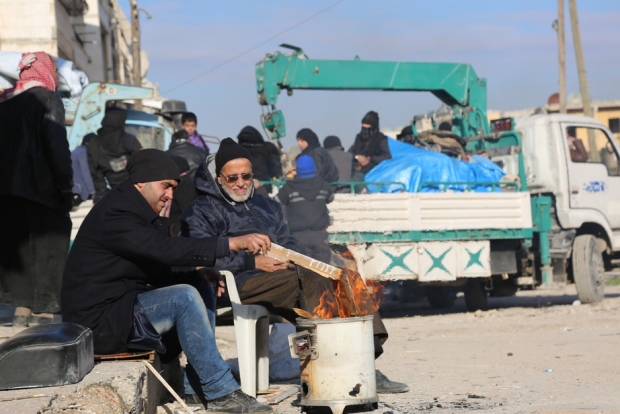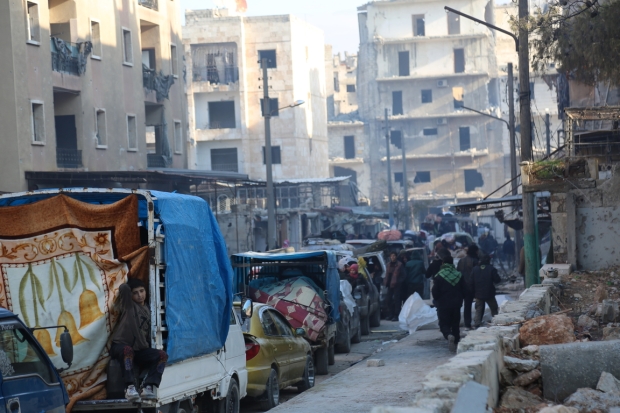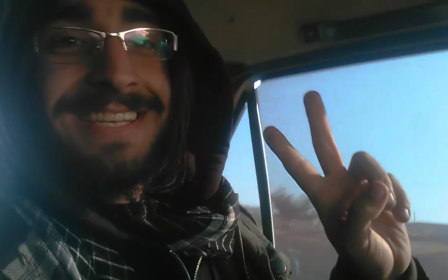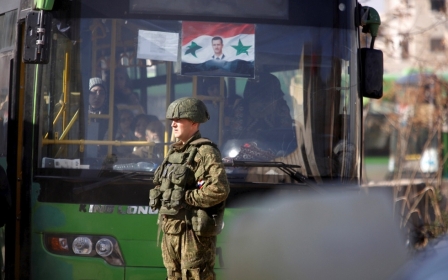Aleppo evacuations: Aid workers warn of humanitarian 'disaster'
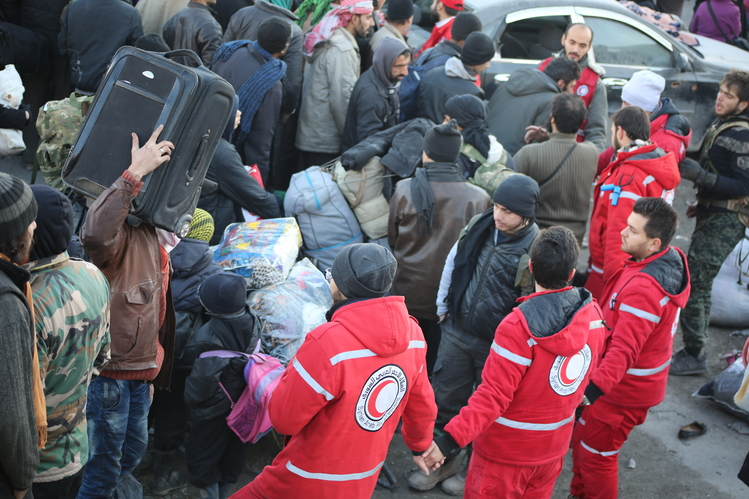
Aid workers dealing with the influx of refugees to Idlib province from eastern Aleppo have described the humanitarian situation there as a "disaster" and fear the expected arrival of thousands more will only make the situation there worse.
The warning comes with many of those already transported to rebel-held Idlib since last Thursday still struggling to find shelter and food in freezing conditions.
The International Committee of the Red Cross said on Tuesday that at least 25,000 people had left the besieged rebel enclave as a result of a deal between the Syrian government and its allies and opposition rebel groups, which also saw evacuations from two Shia-majority villages in Idlib besieged by rebels.
But Omar Ali, an aid worker for British aid charity Human Appeal, one of the few aid organisations still operating in Syria, described the operation to meet the needs of the new arrivals as "unorganised chaos".
Speaking about the current situation, Ali told Middle East Eye: "With so many people on the move in different directions without shelter, and so many people living in makeshift refugee camps inside Syria trying to flee to the border... the scale of funding given to humanitarian aid groups is simply not enough."
Some refugees were being picked up by friends and families from Idlib which had helped ease numbers requiring accommodation, according to Mohamad Katoub, an aid worker for the Syrian American Medical Society Foundation (SAMS).
Speaking to MEE from his office in Gaziantep in Turkey where he was coordinating SAMS' response in Idlib, Katoub said: "We fear that the lack of shelter and facilities (in Idlib) will bring more health issues."
The fears come as SAMS and other aid organisations with the help of Turkish NGOs frantically build camps and medical facilities to accommodate the thousands more still expected to arrive from eastern Aleppo.
"But the main issue right now is shelter with many people having nowhere to go once they arrive in the west Aleppo countryside and Idlib," Katoub told MEE.
Since the evacuations began nearly a week ago more than 90 patients in need of urgent medical care had been evacuated to Turkey with plans to evacuate another 300 patients who were brought to Idlib from east Aleppo.
The American NGO had previously operated most of the hospitals in rebel-held eastern Aleppo but was forced to close down all its facilities as the Syrian government and its allies pummelled the area with air strikes.
It said it planned to upgrade 90 primary healthcare centres to meet the needs of an estimated quarter of a million refugees heading to Idlib.
Doctors who had been tending to the refugees arriving from east Aleppo were working "round the clock" and "surviving on a few hours sleep" according to Katoub who said that doctors were more "determined than ever before to help".
Medical workers operating in Idlib say they are heavily under-equipped.
British doctor Shajul Islam in a video published on Facebook said makeshift hospitals in Idlib were being prepared to tend to the wounded but lacked basic life-support and patient-monitoring equipment.
The fears raised by aid workers come as temperatures continue to plummet across Syria and eastern Aleppo's remaining residents were pictured burning possessions and scraps of wood to stay warm as they await evacuation.
The UN Security Council voted unanimously on Monday to send monitors to observe the ongoing evacuation process.
British UN representative Matthew Rycroft in a video published on Twitter said that that sending UN observers was "bitterly overdue" and that it was "absolutely crucial that every single party to this conflict, but in particular Russia, Syria and Iran implement this resolution fully."
According to Reuters, a military media unit run by Hezbollah, the Lebanese militia that is an ally of the Syrian government, said the Syrian army had said it would enter the remaining rebel-held areas of eastern Aleppo on Tuesday.
New MEE newsletter: Jerusalem Dispatch
Sign up to get the latest insights and analysis on Israel-Palestine, alongside Turkey Unpacked and other MEE newsletters
The army's message, broadcast by loudspeaker into the rebel enclave, called on remaining rebels to leave quickly.
The route out of Aleppo runs five kilometres (three miles) to the rebel-held district of al-Rashideen, just beyond the city's southwestern limit.
Middle East Eye delivers independent and unrivalled coverage and analysis of the Middle East, North Africa and beyond. To learn more about republishing this content and the associated fees, please fill out this form. More about MEE can be found here.


